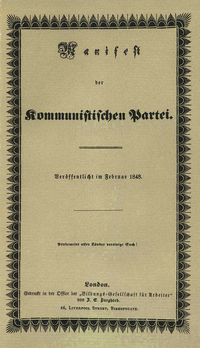 Having recently gone through a major Product Roadmap definition exercise I thought it would be cool to share some thoughts on product roadmaps and get feedback. While there are tons of great posts out there on how to create product roadmaps it's unbelievable how many Product Managers are developing products with no roadmaps!!
Having recently gone through a major Product Roadmap definition exercise I thought it would be cool to share some thoughts on product roadmaps and get feedback. While there are tons of great posts out there on how to create product roadmaps it's unbelievable how many Product Managers are developing products with no roadmaps!!
Product roadmap documents do not have to be fancy slides with great graphics. In fact good roadmaps are so crisp and clear that they can be captured in one slide or page of your favorite document creation tool. Dont be fooled by the simplicity.
Agile products and teams need roadmaps too. Just cause you're developing in iterations does not mean you become a backlog factory and lose sight of the big picture.
Mature products with very little new feature velocity need roadmaps as well. Little velocity means you have only so many resources and shots to fire in each release, imagine spending those on activities that are not aligned with your long term product roadmap.
Knowing our stack ranked list of 300 product enhancements does not mean you know your roadmap. A stack ranked list of Enh. is a very good place to start, but a roadmap is so much more than that and should be more strategic. It should be able to tell you how you will be navigating the course towards your product vision.
Use roadmaps to build consensus and get key stakeholder buyin. It's useless complaining that half-way through a release my roadmap always gets over ridden by one of the Execs. What that tells me is that your roadmap is not aligned with the overall corporate or business strategy and was not bought into by the stakeholders.
Ensure that you continously validate items you place on the roadmap with your long term product vision. Reality is that you'll have to deviate from the roadmap every now and then, however the constant validation will help ensure that you either tie it back or ensure that the deviation is not a huge sidetrack from the original vision.
(special case of point just made above) Avoid letting the next big sales deal define your product roadmap. Yeah right, easier said than done. This one's the toughest one to combat, contain, accept ... use your favorite term here. However be prepared for the ultimate reality that revenue is a key engine in a for-profit organization and will often trump other items on the roadmap. I think the key here is being open to such mega deals and then not letting them completely dominate the scene, but rather harnessing them in the right fashion to achieve your longer term vision. Remember with mega deals come resources to get things done. Thats good news for most resource strapped product teams.
Never get into the "We know what we're building here, so we dont need a roadmap" syndrome. Its the first sign of an internally focused product creation cycle that ultimately will drive the product aground.
For larger more complex product lines, ensure that frequent cross-product roadmap validations take place. This ensures that functional overlap areas, commonly shared areas like platform, cross-team impact areas like internationalization are clearly defined and rationalized as part of the roadmap.
A product roadmap to me is a high level document that lays out the product plan for a given timeline (near-term or long-term) with clearly defined milestones (releases) of how we'll be able to navigate from where we're today towards achieving the vision.
3 Key Takeaways for Product Roadmaps
- Always create product roadmaps and ensure that they are living breathing documents that are revisited atleast twice a year.
- Get key stakeholder buyin for your roadmap items. Ultimately roadmaps have to be aligned with corporate and business strategy and exec buyin is a large part of that.
- For every item placed on the roadmap ask the question, how does this help us achieve the long term product vision



